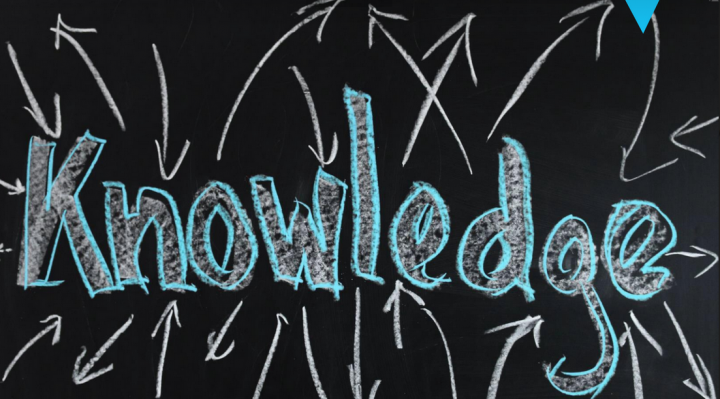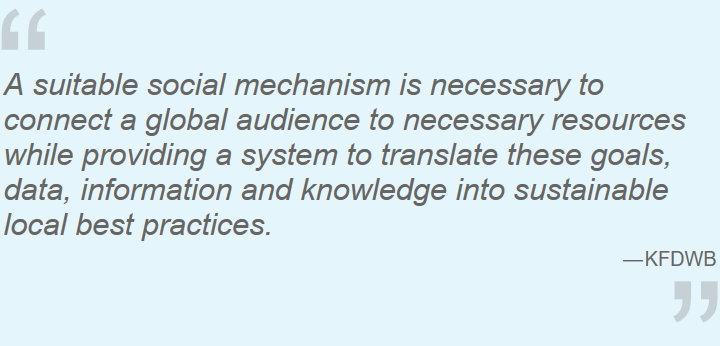
Development of case studies
KFDWB’s mission is to provide worldwide Development Aid Support to development agencies, organizations, local governments, NGOs public and private institutions by helping local communities know and understand which human development challenges and/or frustrations they are facing each day, and make these information and knowledge universally accessible via a central database and useful to development organizations and local and national responsible bodies in order to highlight and alleviate the problems at a community level to reach the Sustainable Development Goals (SDGs) in each corner of the globe.
In order to gather these information and knowledge, it is necessary to engage, and work hand in hand with the local populations, local Medias, local NGOs, local governments, private and public institutions, international development organizations, and local community practices etc.
These activities require an integrated central database capable of recording and classifying the information and knowledge, local volunteers to put the information and knowledge in the integrated central database on our development aid support platform, local volunteers and/or Staff to verify the accuracy of the raised information and knowledge (Development Aid Support and/or local development best practices) before a ‘Development Case Study’ (DCS), and staff to investigate, review, summary and classify the information and knowledge on our development aid support platform.
In addition we need also to set up a central permanent office in Vienna and local offices on the ground with support staff who have the experience to deal with individual support requests and to build up case studies to provide an accurate and comprehensive analysis of the current situation on the ground for the donors and to build the ‘Development Case Study’ (DCS).
To operate on the field we need to establish partnerships with local and international NGOs, governments, development aid agencies and foundations, and some facilities in transport network to send volunteers and/or Staff for analysis, verification and inspection of the requests for development aid support request that have been received by KFDWB to different field inside and outside the country in each corner of the globe.
These facilities are not available in the remote areas in all countries, particularly those where relatively large proportions of the population are affected by the human development challenges and/or frustrations.
It is important to underscore that gathering development Aid support request on our central database is not enough. KFDWB fact-finding and investigation mission is then sent to investigate in collaboration with the local communities on the raised development aid support request for approval to build the development case study.
We remark that the collection of development aid support and the building of Development Case Studies’ (DCS) on these requests require enormous human efforts and financial assistance. It is a lot of work and sometime the working conditions of our local volunteers and/or Staff is extremely difficult because of, but not limited to the following, geographical vastness, remoteness, long distances, and transport and infrastructure challenges notwithstanding.
Cultural traditions in relation to family and gender that determine whether family is good and cohesive or broken and abusive. Rural communities pose difficulties in information gathering for instance it is very hard in a purely traditional community to allow women to be interviewed on gender related matters or community welfare as it is believed to be the male domain. It takes a lot of resources to be invested in information gathering.
Historical injustices that bring community conflicts have perennially led to inter-clan and community rivalry/civil conflicts and insecurity. This scares away investors. This has enhanced hatred and tribal prejudice and do not guarantee security to penetrate for information and data collection. Some communities are prone to insecurity, hotspots, high risk areas etc. which requires deployment of security personnel for field staff to facilitate them to reach communities for interviews, verification and compiling data for formulating Development Case Studies.
Lack of education forms great language barrier that deters effective communication for participation especially in communities with high illiteracy rates, one will need recruitment of a translator or guide, oral distortion notwithstanding.
Identity challenges, those require new Development Aid Support Agencies/entities been officially launched and incorporated by government departments, agencies and leaders at various administrative structures for ease recognition, acceptability and trust with state data.
Logistics of holding meetings, workshops and interviews, this is a delicate area. It is not is easy to get appointments, allocation of venues or and allowed to be to video-tape scenes, photographs or structures. To conduct workshops, seminars will require resources to hire halls/venues, facilitate key speakers, resource persons and ensure their security is in place.
Corruption, syndrome of handouts where opinion leaders need to be given tokens of appreciation to share information. Development aid is associated with NGOs that have money and their representatives have to pay allowances for their work to be facilitated. Even government officials are not spared either, they need out of pocket allowances /per diems for travel, lunches, accommodation etc.
Leadership quality, those that have little education, lack experience or and vision to coordinate and accommodate new views on new technology to accelerate development. They are stereo-type who do not embrace change, new trends, new paradigm, systems of new mechanisms. Generally hard to embrace change and see it necessary for them to be change agents. To dissuade them from such attitude is resource consuming exercise in terms of time as an economic resource and monetary value.
All these come at great additional expense and workload. KFDWB needs funding and the right strategy to operate accordingly on the field in each corner of the globe. So we are calling to all development foundations, individuals, development agencies, donors, governments, organizations, public and private institutions that find our initiative relevant to provide us financial assistance.
The work of the KFDWB is intended to be financed through social Service Support to the forthcoming Sustainable Development Goals (SDGs) activities (providing technical assistance at the communities level on the best practices of MDGs and SDGS, collection of the Development Aid Support on the ground, building the Development Case Study (DCS) and make them accessible on request), through donations, contributions of public and private funds, charities, foundations’ funds and through public fund raising and other contributions.
KFDWB can provide you with a full ‘case study’ for any of the support requests shown in the table of summary requests for development aid we have received in our database. Some examples of full Development Case Studies (DCS) are provided below, which include the following: a review of all previous relevant local, national and international reports, knowledge of previous and/or current donor funding and their objectives, the actual situation on the ground with respect to funding, testimonials from local community members, leaders/administrators, resource persons, media reports, and photographic and/or video evidence.
Where possible, KFDWB are able to provide a basic costed solution for the remediation of the community problem. Please note, KFDWB charges for supplying a full DCS on request.
You can find some of our old case studies here.
KFDWB can provide you with a full Case Study for any of the support requests shown in the table below. The Case Study includes, but is not limited to the following: a review of all previous relevant local, national and international reports, knowledge of previous and/or current donor funding and their objectives, the actual situation on the ground with respect to funding, testimonials from local community members, media reports, photographic and/or video evidence. Where possible KFDWB is able to provide a basic costed solution or volunteer assistance for the remediation of the community problem.
Live Visualization of the information we are collecting

